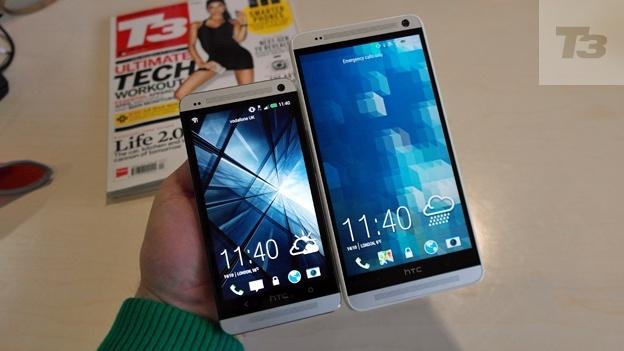
Big phones are trending right now, there's no denying that claim. It seems like every time you browse a forum or read an article there's another call for some popular device to have a larger screen.
"The iPhone needs to have a bigger screen."
"The Galaxy Note needs a bigger screen."
"The next Galaxy S phone needs a bigger screen."
"The Optimus G needs a bigger screen."
Everything always seems to need a bigger screen, but in my opinion I feel that increasing the screen size plays a minimal part in comparison to what else could be done to a phone (hardware-wise, that is) that would benefit the user more than just a larger screen.
In a sense, I suppose you could look at this as another one of my articles that keeps pushing for smaller screens - I've been known to write them from time to time. But in all actuality, what I'm really trying to say here is that manufacturers don't always have to make the screen of their next generation device larger in order to draw people in. I'm sure that statement sounds a little like crazy talk, because at this point even I (like many of you do, I'm sure) do associate next-gen smartphones with having at least a slightly larger screen. I guess you could say the phrase "Bigger is better," holds some truth to it in this industry, but I don't feel like it has to. Just look at the iPhone and how it is magically able to improve specs without necessarily having to include a larger screen into the mix.
With it being the middle of January, we haven't actually seen any new big flagships come to fruition yet this year. However, as my fellow editor Evan pointed out in his article the other day, that doesn't stop the Rumor Mill from being as active as ever. Already we have specs of the Galaxy S5 and the HTC M8 (or whatever the next generation HTC One will be called) flying around, among several other phones. And with all of them come the rumor of having a larger screen. The rumor for the Galaxy S5 was particularly interesting because the screen is reported to be bigger, but only by about .25 inches. I'm not saying that the slight increase in size is there because it was cosmetically needed for the design of the phone, but I imagine that at some point Samsung will make it a marketing ploy to say that the Galaxy S5 has a "bigger screen" than its predecessor. Even if it's only slightly, it's still true.
People also seem antsy to see if the HTC One's successor, which already featured a smaller screen to its biggest rival at the time (Galaxy S4), will have a larger screen as well. And personally, I hope it doesn't. As somebody who shuffles phones around somewhat frequently, I do find that I stay below the 5-inch mark. If all flagships get to the point where they have 5-inch plus screens, I don't know how much longer I'll be able to comfortably hold a smartphone. The 4.7-inch screen on the HTC One is a good sweet spot for a lot of people, and I think it should carry over to the next-gen HTC One as well. After all, there's always the HTC One Max to better suit those looking for a phone with a larger screen.
Which actually seems like the direction that a lot of flagships are taking at this point. As I mentioned yesterday in my article calling for a Samsung Galaxy Note Mini, it seems that some flagship devices are now coming out with not one, not two, but three size variants. You have your tall, your grande and your venti. So perhaps with this new strategy we'll be able to actually leave some flagship sizes between the 4 to 5-inch ballpark.
I think large phones are great, but they're not great for everybody. While screen size in a device is important, it's not always necessary to increase it with every new generation that comes out, that's all.
Do you think that in order for a next-gen phone to get better that it needs a screen size increase? Let us know your thoughts in the comments below!
Images via T3, Hardware Zone